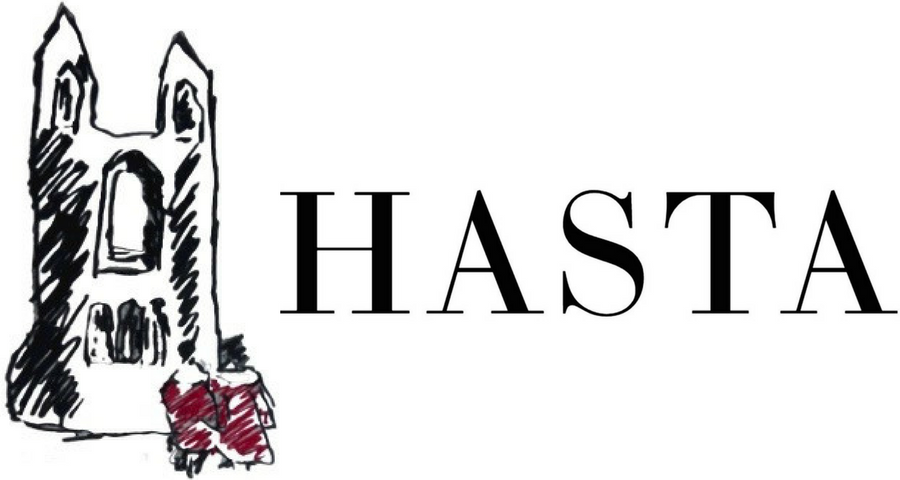Controversy as Poland Removes its Artist for the 2024 Venice Biennale
By Mary Whitlock
In a controversial and unprecedented move, Poland’s new centrist coalition government, led by Donald Tusk, have removed the country’s ‘Anti-European’ submission for the Venice Biennale later this year.
Undeterred by their failure to win a majority in the 15th October 2023 general election, the country’s right-wing populist party Law and Justice (PiS) (known for its harsh stance on LGBTQ+ rights and those of women) had continued with the organisation of their pavilion. Announced on 31st October, in the final weeks of their eight-year rule, this decision can be seen as the party’s parting shot in the culture wars that pervaded their time in power.
Installation view of “The Painter Was Kneeling When Painting” exhibition by Ignacy Cwartos at Zachęta National Gallery of Art in Warsaw, Poland. Photo: Juliusz Sokołowski, courtesy of Zachęta National Gallery of Art, via artnet.
The artist Ignacy Czwartos had been chosen, with his exhibition “Polish Exercises in the tragedy of the World: Between Germany and Russia”. This featured paintings of both Germany’s and Russia’s mistreatments of Poland throughout modern history, with one work showing Angela Merkel (German Chancellor, 2005 - 2021) connected to Vladimir Putin (President or Prime Minister of Russia since 1999) by a St Andrew’s cross manipulated to look like a swastika. In the proposal document, the show was described as “a profound reflection by a contemporary Polish artist on the tragic history of the 20th century”.
When Tusk went on to form a coalition government on 13th December, the new culture secretary, Bartłomiej Sienkiewicz, soon removed the proposed artist and works, as well as dismissing the right-wing painter Janusz Janowski from his position as Director of Zacheta National Gallery of Art in Warsaw (the institution that oversees Poland’s participation in the Biennale).
This had also come after an unprecedented move by three members of the jury that chose the original commission: Jagna Domżalska, Joanna Warsza and Karolina Ziębińska-Lewandowska. They presented their disapproval of Czwartos’ works in a “votum seperatum”, saying that they represented a decline into a “narrow-minded, ideologically paranoid and shameful position”, adding that it “does not in any way reflect Poland’s contemporary art scene”
Furthermore, the 60th Venice Biennale (held from 20th April to 24th November 2024) has been given the theme “Foreigners Everywhere”, celebrating migration and non-belonging. The nationalist tones of Czwartos’ works were considered out of step with this level of inclusivity.
Before he was embraced by PiS, Cwzartos (born in 1966) was not considered a major player in the Polish contemporary art scene. Despite the non-traditionalist style of his poster-like paintings, thematically they align strongly with the ideologies of the right-wing former government. He has now branded the removal of his artworks by the new government as an act of “censorship”.
Open Group, Repeat After Me (2022) installation view at Labirynt Gallery in Lublin, Poland. Photo: Bartosz Górka and Emilia Lipa, via artnet.
In its place, the performance video “Repeat After Me”, initially a back-up option, has been chosen. The work is by ‘Open Group’, a Ukrainian collective including Yuriy Biley, Pavlo Kovach, and Anton Varga, that has already staged a Venice pavilion – representing Ukraine in the 56th Biennale in 2015.
The installation features Ukrainian refugees in a camp in Lviv sharing their experiences of Russia’s war, focusing particularly on sound. Often the only way to distinguish different types and scales of attack is through the differing noises they make. The work combines dialogue with audio reproductions of shelling, gunfire and air raid sirens, fully immersing the visitor.
Despite the fact that Czwartos believes his works have present as well as past relevance and refer “above all to Putin’s brutal attack in Ukraine”, the huge opposition he has received and his removal would suggest otherwise. The organisers of Czwartos’ show stated that the work intends to “accuse”, “provoke” and ask “unpleasant questions”. And it most certainly has.
Bibliography
ArtReview, “2024 Venice Biennale pavilions: your go-to list [updated]”. News. ArtReview. 4 December 2023. Accessed 9 January 2024.
https://artreview.com/2024-venice-biennale-pavilions-your-go-to-list/
Harris, Gareth. “’Censorship’ claim roils Poland’s plans for Venice Biennale pavilion”. CNN Style. 5 January 2024. Accessed 8 January 2024.
Lawson, Tancred. “Poland Withdraws Its ‘Anti-Euopean’ Submission to the Venice Biennale”. artnet. 8 January 2024. Accessed 9 January 2024.
https://news.artnet.com/art-world/poland-withdraws-venice-biennale-submission-2417017
News Desk, Artforum, “Poland announces artist change for 2024 Venice Biennale”. Artforum. 2 January 2024. Accessed 9 January 2024.
https://www.artforum.com/news/poland-announces-artist-change-2024-venice-biennale-545797/
Oltermann, Philip, “’An anti-European manifesto’: Poland’s Venice Biennale entry defies inclusive theme”. Poland. The Guardian. 12 November 2023. Accessed 9 January 2024.
Open Group. “Open Group – Repeat After Me”. N.d. Accessed 9 January 2024.
Unwin, Richard, “Three members of the jury that voted on Poland’s 2024 Venice Biennale pavilion show hit out at plans”. News: Venice Biennale. The Art Newspaper. 7 November 2023. Accessed 9 January 2024.


